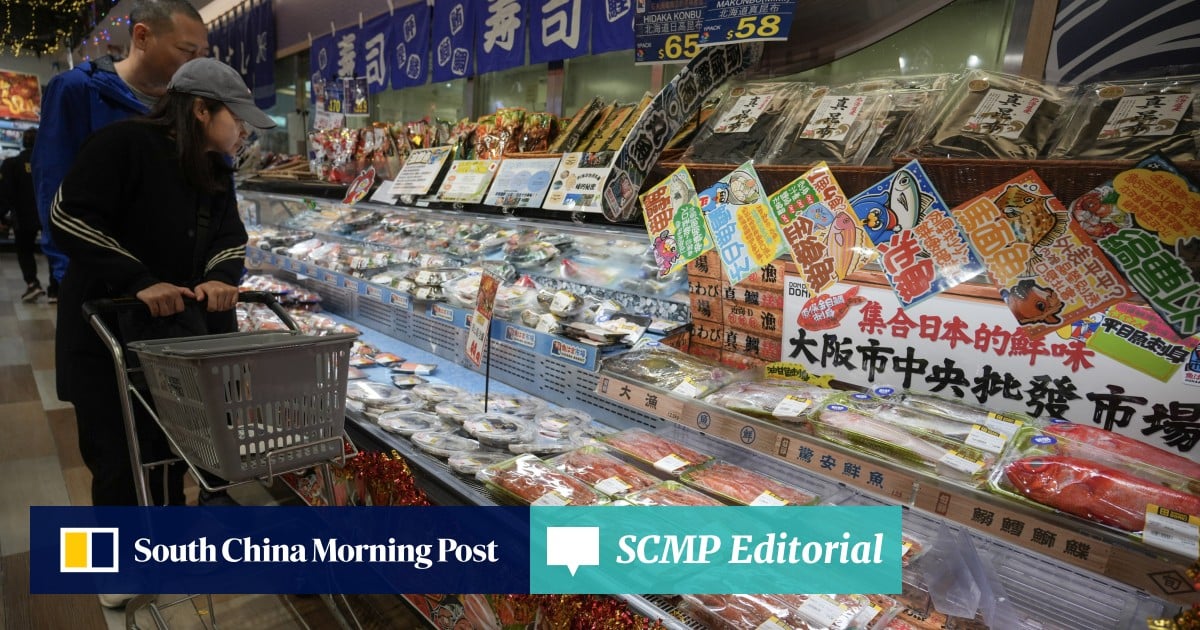4th February 2025 – (Hong Kong) For years, the perpetual doomsayers have claimed Hong Kong’s best days are behind it. That the city’s economic dynamism has been permanently hobbled by political upheaval, an exodus of talent and an irreversible loss of international relevance. Yet the latest GDP figures tell a markedly different story – one of a miraculously resilient financial hub steadily regaining its mojo after riding out unprecedented storms.
The 2.4% year-on-year growth in the fourth quarter of 2024, an acceleration from the previous period, provides compelling evidence that Hong Kong’s phoenix-like resurgence is well underway. This comes on the heels of a challenging couple of years navigating the pandemic’s brutal economic fallout as well as the destabilizing impacts of social unrest. That the city has not only survived these crises but is now leading Asia’s recovery is a testament to unparalleled fiscal discipline, prudent policymaking and the indomitable entrepreneurial spirit that courses through its veins.
For the naysayers who have relished portraying Hong Kong as a city in terminal decline, beset by a purported “brain drain” and capital flight, these surprisingly robust figures should inspire a long-overdue reality check. Far from the embattled basket case they gleefully predicted, Hong Kong has confounded its critics yet again to reaffirm its status as one of the world’s most indispensable commercial capitals.
The engines driving this renaissance are multifaceted but can be summed up in two words: strategic positioning. Despite heated rivalry from Singapore and threats like deglobalization, Hong Kong’s symbiotic relationship with mainland China and unique geographic advantages have enabled it to remain the preeminent gateway connecting East and West.
With $3.7 trillion in stock market capitalization and the world’s most affluent pool of wealthy entrepreneurs and corporations, Hong Kong is simply too pivotal and intertwined with the global economy to be so easily dislodged. The city’s unrivalled cross-border facilitation role, bolstered by the Stock Connect scheme and other integration initiatives, will only grow more lucrative as China’s economic influence expands. The centrality of the Hong Kong dollar’s U.S. dollar peg is another powerful anchor ensuring enduring international relevance.
None of this is to dismiss the headwinds facing Hong Kong, which should not be sugar-coated. The bifurcation of the world into U.S. and China blocs poses challenges around where the city is positioned. Heightened sectarian tensions and a looming demographic crisis also cannot be ignored. Hong Kong still has a rocky road ahead as it seeks to recover its vibrancy and reclaim its institutional strengths.
A key driving force has been the city’s export resurgence, with goods shipments rising 1.2% year-on-year despite escalating superpower protectionism. Hong Kong’s status as a neutral East-West crossroads has allowed it to deftly navigate the trade frictions hampering regional rivals. As the US-China decoupling deepens, Hong Kong is uniquely positioned to benefit from firms seeking hassle-free re-export routing to sidestep tariffs and tensions.
Meanwhile, services exports skyrocketed 5.6% in the fourth quarter as the revival of tourism and travel breathed new life into the city’s hospitality, retail and aviation sectors. Hong Kong received 2.7 million visitor arrivals in December, up 262% year-on-year and a harbinger of even busier times ahead as global mobility fully returns. Airlines, hotels, restaurants and other tourism operators have been staffing up aggressively in anticipation.
On the domestic front, Hong Kong’s revival has been fueled by the unleashing of pent-up consumer demand following the lifting of pandemic restrictions. While private consumption declined 0.2% over last year, this still represented a marked improvement after the previous quarter’s 1.3% contraction. With household finances in healthy shape and the labour market tightening, spending is set for a surge.
Investment is another driver, with Hong Kong benefiting from its reputation as one of the world’s most business-friendly environments. Gross domestic fixed capital formation increased 2.4% for the full year, underpinned by a flurry of major infrastructure projects and the influx of companies establishing regional headquarters or expanding operations in the city.
The statistics lay bare how Hong Kong has adroitly leveraged its advantages – low taxes, brilliant legal infrastructure, unrivalled connectivity and deep pools of capital – to futureproof its status despite socioeconomic challenges. While some international firms did downsize or relocate in recent years, they have been outnumbered by those doubled down on their presence as a springboard into mainland and Asian markets.
Of course, as Hong Kong’s recovery gains steam there will be obstacles to negotiate. The perpetuation of Beijing’s zero-COVID policies, which kept the border largely sealed for three years, has distorted economic patterns in ways that may take time to course-correct. The city’s retail and hospitality segments remain diminished compared to their pre-pandemic vibrancy, hindering a fuller rebound.
There are also concerns over Hong Kong’s longer-term ability to attract top global talent and capital. While fears of an exodus have proved overwrought, perceptions of waning autonomy and individual freedoms have generated headwinds. The city’s eye-watering property prices, strained public finances and demographic time bomb pose further challenges in the years ahead.
However, none of these roadblocks are insurmountable. The invigorating effects of the border reopening, revival of travel and unleashing of pent-up consumer demand will be potent economic accelerants. The reality is global financial institutions and multinationals still have no better base from which to access China’s inexorably rising consumer market, even with Hong Kong’s supra-national prerogatives curtailed.
What bolsters long-term confidence is the steady stream of far-sighted infrastructure investments and pro-business policies emanating from Beijing and locally. From the HK$624 billion Northern Metropolis masterplan to develop the New Territories to a new HK$3.6 billion fund supporting Hong Kong’s re-emergence as a global arts hub, the spadework for future growth is being entrenched.
The stock market connects with Shanghai and Shenzhen have not only prevented an exodus of corporate listings but enabled a new generation of Chinese tech titans like TikTok parent Bytedance, Ant Group, Tencent and Alibaba to take root in Hong Kong. The ambition is to turbocharge the city’s innovation credentials after setbacks like the ill-fated anti-mask law and fallout from the controversial national security legislation.
At a time when Western democracies are decoupling from China and restricting tech exports over security concerns, Hong Kong has doubled down on its role as a uniquely neutral intermediary facilitating flows of capital, data and talent in both directions. Many of the world’s most precious and cutting-edge unicorn firms are now straddling the world’s greatest superpowers from a Hong Kong vantage point.
The recent upswing in trade and business relocations flows attests to Hong Kong’s enduring connectivity proposition. Even as COVID-19 still raged, FedEx opened a new HK$9 billion air cargo facility in 2022 underscoring Hong Kong’s indispensable role as an international logistics hub. Leading law firms, fintech disruptors and family offices have also migrated operations, capitalizing on Hong Kong’s rule of law, tax advantages and “East-meets-West” nexus.
These virtues are not lost on regional authorities. This month Saudi Arabia took the unprecedented step of establishing its regional headquarters for the Asian continent in Hong Kong, viewing the city as a crucial gateway into China’s booming economy. Sovereign wealth funds from across the Persian Gulf have also been dramatically raising their profile and investment allocations in the territory.
None of this is to ignore the myriad challenges that still cast a pall over Hong Kong’s future sustainability. The city’s ballooning fiscal deficits and record-high property prices have fueled a brain drain that cannot be allowed to metastasize. Its common law legal traditions and judicial independence must be stoutly preserved against undue political interference. Efforts must be redoubled to enhance liveability and nurture the cultural and creative sectors that are hallmarks of truly global cities.
However, the pessimists predicting Hong Kong’s doom have clearly been proven wrong, at least for now. While nothing is preordained, the economic renaissance revealed in the latest GDP figures highlights just how prematurely its eulogy was written off. Hong Kong has summoned its fabled resilience and reinvention to rise anew, battered but unbowed in the face of historic headwinds.
The city’s miraculous resurgence defies those who lazily caricatured it as a tragic victim of Beijing’s tightening grip over semi-autonomous affairs. Yes, the “one country, two systems” framework has been deeply strained by political events. However, Hong Kong remains very much economically indispensable to China’s national rejuvenation goals in a way that affords unique opportunities even amid mounting U.S.-China frictions. Barring a full-blown conflict that ruptures all bilateral economic ties, Hong Kong’s symbiotic relationship with both Beijing and Washington is positioning it perfectly to reap the dividends of lingering interconnectivity even as decoupling accelerates.


